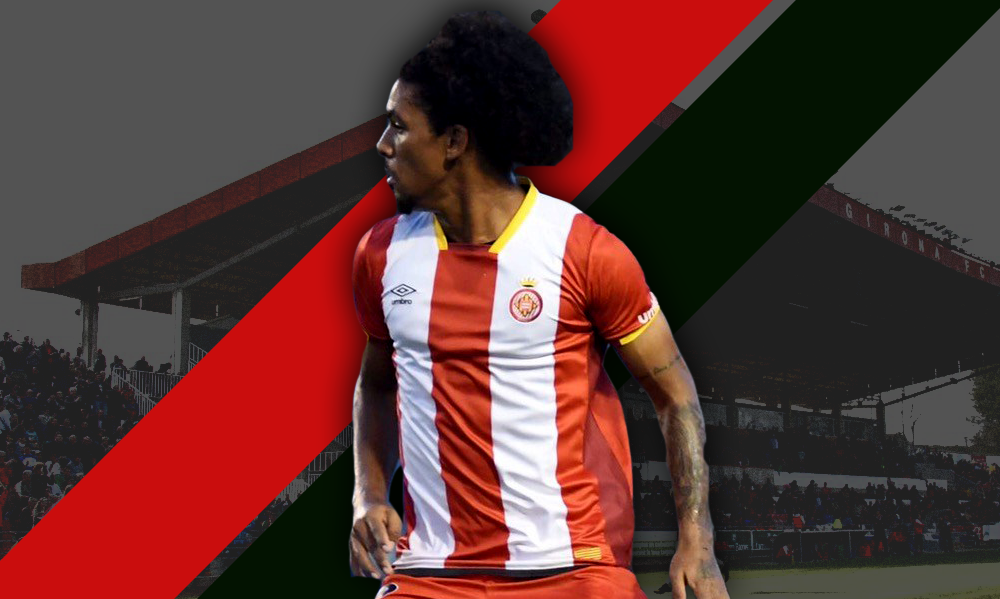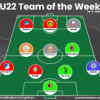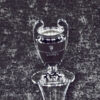Anderson Moura analyses Girona’s (via Manchester City) talented Brazilian, Douglas Luiz.
When Pep Guardiola accepted the Manchester City job, he knew that ‘renovation’ would be the keyword since the Citizens had a good team, but with a short expiration date. Thus, he and his team had to sift the market not only for good players, but also for promising young stars that could generate an investment in the long term. Benjamin Mendy, Bernando Silva and Ederson are the more famous (and expensive) examples of the new transfer politics of the club, but Guardiola is not focusing on just the current season.
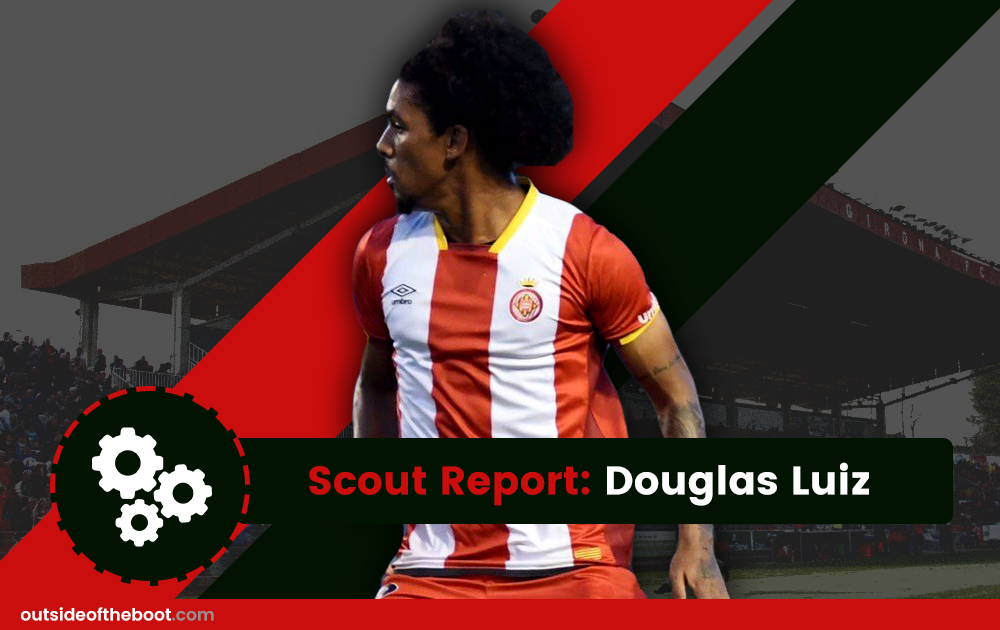
Douglas Luiz is a great bet for the coming years and if his development at Girona (where he was already sent on a loan deal) continues the same way as it was going in Brazil, the Sky Blues will have a great player for years.
Who is Douglas Luiz?
The beginning of Douglas’s journey was very similar to many Brazilian players: living in a poor community, he saw football as an opportunity to give something to his family. When he was 14 years old he was accepted in the Vasco da Gama youth academies and made a big impact years later, playing in the U17 team. There, the competition to play in the initial XI was brutal, as Vasco had three players constantly called into the national team of the category (Andrey, Evander and Mateus Vital), so Douglas thought it was better to play as a right-back than not no play.
As Vasco was in the Brazilian Serie B in 2016, they were forced to use some domestic solutions and promoted nine youngsters. Douglas was not amongst them, but injuries and suspensions forced the team to call for even more kids and that’s when Douglas started to draw some attention. When the team passed through its worst moment in the year, Douglas was like a light at the end of the tunnel. The coach Jorginho liked what he saw and the player had a six game sequence, enough to convince everyone.
When Vasco was again with the elite of Brazilian football, Douglas was even better, but was still fated to highlight himself in teams that disappointed. That was the case of the U20 South American Championship. Douglas, Felipe Vizeu (Flamengo), Richarlison (then at Fluminense and now at Watford) and Guilherme Arana (Corinthians) had a decent tournament, but weren’t enough to put Brazil in the first four and the country, shamefully, was out of the U20 World Cup.
Back to Vasco da Gama, Douglas soon began to leave his supporting role to play as a main actor, becoming well-known by his cold blood and maturity in important games, such as the derbies against Flamengo, Botafogo and Fluminense. That was enough to put him in the Campeonato Carioca’s best XI and summon scouts from Monaco, Borussia Dortmund and Manchester City to Brazil. However even though his contract had recently been renewed, Vasco could not hold him when the €12M offer arrived from England.
What is his Style of Play?
Douglas has been used as the first man in the midfield and as the second one, with less defensive responsibilities and more freedom to carry and conduct the ball, which the English name ‘box-to-box’. And this was definitely the best option. Not just because he protects the ball very efficiently when he runs with it, but also because he does it with plasticity and elegance, always with his head up, studying the possibilities while maintaining the pace.
Douglas also has an incredible easiness to play both on the center and on the flanks (maybe because of his right-back experiences as a youngster). And when he goes to the sides, one thing he likes to do and does very well is to play long diagonal balls to the other side of the pitch, looking for a less pressured partner. In his debut in the Spanish La Liga against Malaga, Douglas occupied the right position on the midfield for 20 minutes, but don’t be surprised if Girona’s coach, Pablo Machín, uses him in different places with different functions. It will not mean that he has doubts about his player. Douglas has enough versatility for many roles.
Hereupon, Tite’s recent calls for the national team shows how and why his development in these functions would be important to his nation. Fernandinho, Paulinho and Renato Augusto, men Tite trusts the most at midfield (alongside Casemiro), are not exactly models to follow in today’s football, where the athletes have to show a plurality of functions and ideas, but each one of them can be seen a little bit in Douglas. Fernandinho is good defending, Paulinho is known by his sprints and infiltrations and Renato has a lot of tactical understanding and awareness, but in the next few years Douglas could be a mix of them. The 2018 World Cup is yet to come, but Brazil has to think about the future. And Tite knows it.
“I’ve already seen Douglas, at Vasco, and I was delighted. It was against Atlético Goianiense. I was in the stadium and I said: ‘this kid is a great player’. He is great… The torque, the capacity, the passes, the smooth feet, good first touch, the ball protection…” said the coach on a Brazilian TV show called ‘Noite dos Craques’.
What are his Strengths?
Beyond the strengths written on his style of play (great on carrying the ball, superb technique and versatility to adapt to different situations), Douglas surely can do some good dribbling. A regular young player arriving in Europe may not try that too much in his first games, but once Douglas is someone with personality and confidence, beautiful things can happen when he faces one on one challenges after the first few games.
And if the dribble is not an option, that is not a problem. He has a really precise pass, especially when he tries layoffs for fast wingers. It’s not likely that the boy will have the same protagonism he had at Vasco for adaptation reasons, but he can also dictate the rhythm of his team if the coach has enough reliability to ask him. If the strategy is intensity, his passes can cut the opposition lines. If possession is the focus, he can patiently wait for the opportunities.
What are his Weakness?
His long shots are not exactly a total weak point since Douglas has a powerful kick, but he definitely has to improve his precision, so much so that he did not score many goals with this attribute for someone who was frequently prowling the rival’s box.
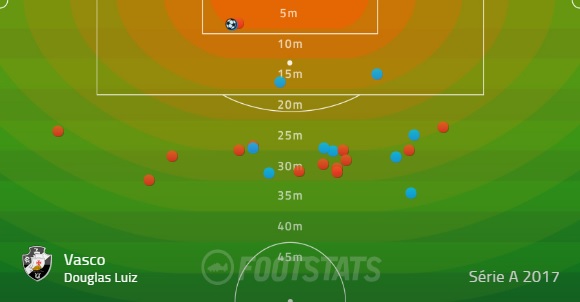
According to Footstats.net, Douglas had 10 shoots on target and 14 off target
But nothing needs more improvement than his marking skills. Sometimes, when he finds himself in a situation of defensive one-on-ones, Douglas is still very hasty to tackle and commits too much fouls because of his restlessness. However while he has a good number of successful tackles, he has also lost a bunch of them for his instigation. Furthermore, when the defensive situation is based on a positional game, Douglas lacks a sense of coordination with partners and frequently breaks his team’s marking line. These points gets better with specific training sessions and it was good that Manchester City could find a calm place where Douglas could be less affected by his mistakes. The Premier League would be an aggressive change of reality for the Brazilian, but Girona surely has a wonderful environment for Douglas, Pablo Maffeo, Aleix Garcia and Marlos Moreno to evolve.
- Brasileirão U-23 Young Players’ Team of the Season 2017: Talent Radar - February 6, 2018
- Exclusive Interview: Gabriel Brazão, Brazil’s gentle giant and U17 World Cup star - December 7, 2017
- USA out of the World Cup: What happened and what next for the Soccer Nation? - November 10, 2017




















































